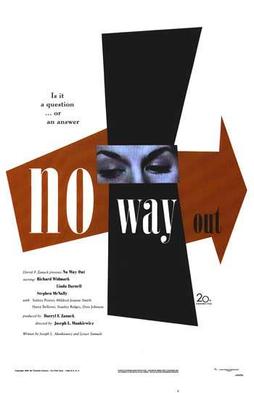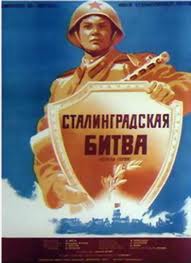
Wilhelm Reich was an Austrian doctor of medicine and a psychoanalyst, a member of the second generation of analysts after Sigmund Freud. The author of several influential books, The Impulsive Character (1925), The Function of the Orgasm (1927), Character Analysis (1933), and The Mass Psychology of Fascism (1933), he became one of the most radical figures in the history of psychiatry.

Orgone is a pseudoscientific concept variously described as an esoteric energy or hypothetical universal life force. Originally proposed in the 1930s by Wilhelm Reich, and developed by Reich's student Charles Kelley after Reich's death in 1957, orgone was conceived as the anti-entropic principle of the universe, a creative substratum in all of nature comparable to Mesmer's animal magnetism (1779), to the Odic force (1845) of Carl Reichenbach and to Henri Bergson's élan vital (1907). Orgone was seen as a massless, omnipresent substance, similar to luminiferous aether, but more closely associated with living energy than with inert matter. It could allegedly coalesce to create organization on all scales, from the smallest microscopic units—called "bions" in orgone theory—to macroscopic structures like organisms, clouds, or even galaxies.

Ludvík Svoboda was a Czech general and politician. He fought in both World Wars, for which he was regarded as a national hero, and he later served as the president of Czechoslovakia from 1968 to 1975.

Čáslav is a town in Kutná Hora District in the Central Bohemian Region of the Czech Republic. It has about 10,000 inhabitants. The historic town centre is well preserved and is protected by law as an urban monument zone.

No Way Out is a 1950 American film noir crime drama film directed by Joseph L. Mankiewicz, and starring Richard Widmark, Linda Darnell, Sidney Poitier, and Stephen McNally, who portrays a doctor tending to slum residents whose ethics are tested when confronted with racism, personified by Widmark as hateful robber Ray Biddle.

The German Emperor was the official title of the head of state and hereditary ruler of the German Empire. A specifically chosen term, it was introduced with the 1 January 1871 constitution and lasted until the official abdication of Wilhelm II on 9 November 1918. The Holy Roman Emperor is sometimes also called "German Emperor" when the historical context is clear, as derived from the Holy Roman Empire's official name of "Holy Roman Empire of the German Nation" from 1512.

Mildred Elizabeth Harnack was an American literary historian, translator, and member of the German resistance against the Nazi regime. After marrying Arvid Harnack, she moved to Germany in 1929, where she began her career as an academic. Mildred Harnack spent a year at the University of Jena and the University of Giessen working on her doctoral thesis. At Giessen, she witnessed the beginnings of Nazism. Mildred Harnack became an assistant lecturer in English and American literature at the University of Berlin in 1931.
Joan Brady is an American-British writer. She is the first woman and American to win the Whitbread Book of the Year Award for her novel Theory of War.
Robert Alexander Brady was an American economist who analyzed the dynamics of technological change and the structure of business enterprise. Brady developed a potent analysis of fascism and other emerging authoritarian economic and cultural practices. His essential work is "about power and the organization of power around the logic of technology as operated under capitalism", yielding insights and understanding of modern society's careening path between enhancing or destroying "life and culture".

Strange Behavior is a 1981 slasher film written, directed and co-produced by Michael Laughlin, co-written with Bill Condon, and starring Michael Murphy, Louise Fletcher and Dan Shor. Its plot follows a series of bizarre murders being perpetrated against teenagers in a small Midwestern town, at the same time that the local university is engaging in covert mind control experiments on the youth.
Antonin Svoboda or Antonín Svoboda may refer to:

Saturday Island is a 1952 British south seas adventure romance film directed by Stuart Heisler and starring Linda Darnell, Tab Hunter, and Donald Gray. The film was produced by independent company Coronado Productions with the financial backing of RKO Pictures who distributed it in Britain. It was released in America by United Artists under the alternative title Island of Desire.

The Last Man is a 1934 Czechoslovak comedy film directed by Martin Frič and starring Hugo Haas, Zdeňka Baldová and Marie Glázrová. It was shot at the Barrandov Studios in Prague. It was based on a play of the same title by F.X. Svoboda and was later remade as the 1947 film The Last of the Mohicans.
Within the work of the Austrian psychoanalyst Wilhelm Reich (1897–1957), orgastic potency is a human's natural ability to experience an orgasm with certain psychosomatic characteristics and resulting in full sexual gratification.

The Strange Woman is a 1946 American historical melodrama film directed by Edgar G. Ulmer and starring Hedy Lamarr, George Sanders and Louis Hayward. It is based on the 1941 novel of the same title by Ben Ames Williams. The screenplay was written by Ulmer and Hunt Stromberg, Originally released by United Artists, the film is now in the public domain.

The Battle of Stalingrad is a 1949 two-part Soviet war film about the Battle of Stalingrad, directed by Vladimir Petrov. The script was written by Nikolai Virta.
Dexter Wright Masters, was an American editor and novelist who wrote extensively about the dangers of the atomic bomb.
Mildred Edie Brady was a freelance writer for The New Republic who is mostly known for writing the May 26, 1947 article The Strange Case of Wilhelm Reich about psychiatrist Wilhelm Reich's controversial "cosmic energy" research.
Judith Ellen Brady Syfers was an American feminist and writer. She was involved in consciousness raising and wrote the essay "I Want a Wife" which was published in the first edition of Ms. magazine. She later became an activist focusing on the political and environmental factors leading to breast cancer.












